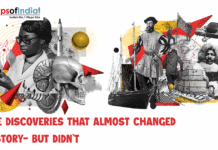Some fantastic literary works of eternal value are generally recognised as deserving to be the best as they set quality standards for other books. They are simply jewels.
Here are some of the best readings:
Essays
Michael de Montaigne wrote the essays in 1580. The personal essay was born out of the efforts of his cultured French man. Starting with the intention of portraying himself “without Sham or artifice,” Montaigne went on to produce charming and witty pieces that have universal appeal. Some of the titles will indicate the starting point of his observations: Of sorrow, Idleness, sleep, age, vanity, darkness, affection of fathers to their children, Defence of Seneca and Plutarch, The Most Excellent Men and so on. Stoical, sceptical, epicurean, meditative and above all, undogmatic and tolerant, Montaigne’s literary introspections enhance our knowledge and understanding.
The Prince
Nikolo Machiavelli wrote it in 1513. This neatly organised and pithily rendered set of observations on statecraft and politics grew out of the author’s experience as a Florentine statesman who served the Medicis. The acquisition and retention of power and the duties of a prince are the primary concerns. Each of its 26 chapters examines some aspect of state graft with cool objectivity that is sometimes mistaken for cynicism. The final chapter, “An exhortation to liberate Italy from the barbarians”, gives an insight into the new thinking of the time that resulted in the birth of nationalism, which is a force that shaped the modern world.
War and Peace
Leo Tolstoy wrote it from 1862 to 1869. Few novels can match Tolstoy’s magnum opus in scale and size, range and number of characters, breadth of vision, and wealth of incidents. Set against the background of the Napoleonic wars between 1805 and 1812, it follows the fate of a host of characters, many of whom are Russian aristocrats. Tolstoy‘s views on history, feet’ role and other inexplicable social forces in life shape the story more than two individual characters. Tolstoy suggests that among all the tumult of history, the simple things of life, like love and kindness, are the most significant.
The Adventures of Huckleberry Finn
Mark Twain wrote it in 1884. Huck, who has come into some money at the end of the adventures of Tom Sawyer, resists all attempts to “civilise” him by the kind Widow Douglas. His nasty father kidnaps him, but Huck escapes and sets out on a life of adventure with Jim, the runaway slave, both being fugitives. While sailing along the Mississippi, they made all kinds of people and had a hair raising experiences, especially after a couple of con men artists joined them. It turns out that Jim’s owner had freed him before she died and that Huck’s treasure is safe. He wants to resume his gipsy existence.
Heart of Darkness
The Heart of Darkness was written by Joseph Conrad In 1902. Marlow, the narrator, tells a group of fellow sailors a strange tale. Once, he had to search for Mr Kurtz, An ivory trader of extraordinary ability, who appeared to be lost. Captaining a ship for the first time, Marlow sold off the Congo, away from civilisation and into what seemed the heart of darkness. Deep in the interior, after witnessing scenes of incomprehensible barbarism, he meets Kurtz, who dies uttering, “The horror, the horror”. So bad by the experience, he returns, hands over a packet of letters to Kurtz’s beloved, and ponders on his unnerving experience.




